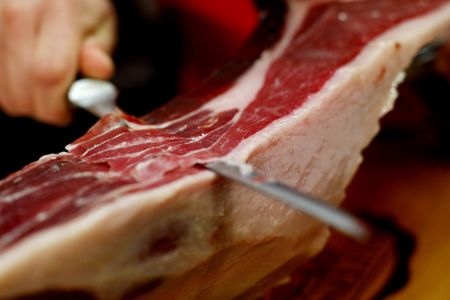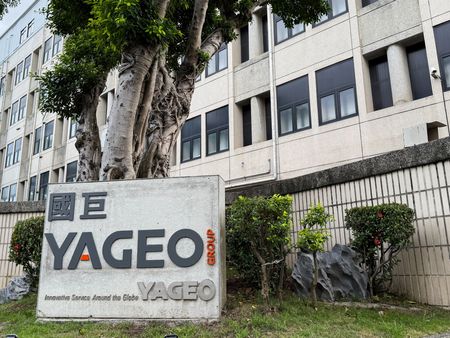By Ella Cao, Emma Pinedo and David Latona
BEIJING/MADRID (Reuters) – China has signed two agricultural trade protocols with Spain covering pork and cherries as the world’s second largest economy acts to bolster ties with the European Union amid an escalating trade war between Beijing and the U.S.
The deal, announced Friday by Spanish Prime Minister Pedro Sanchez in Beijing, came after U.S. President Donald Trump hiked tariffs on Chinese imports to 145%, prompting China to raise its own duties on U.S. goods to 125%.
“In a context of enormous international commercial turbulence, derived from the tariff crisis, we welcome with optimism and hope this new gesture from the Asian giant, which is opening up new options for the supply of pork products,” said the National Association of Spanish Meat Industries (ANICE).
The new deal includes pork stomach exports – a product widely consumed in China but not previously authorised, according to Daniel de Miguel, international manager of Interporc, Spain’s pork producers association.
Analysts regard the deal as a signal Beijing might ease its anti-dumping inquiry into EU pork, launched last year in retaliation for EU tariffs on Chinese electric vehicles.
The investigation could badly impact countries like Spain, the Netherlands and Denmark because a large portion of the EU’s pork shipments to China are pig ears, noses, feet and offal – products rarely consumed in Europe but popular in China.
“This is great news for Spain’s pig farmers,” said Even Rogers Pay, agriculture analyst at Trivium China. “It suggests regulators may delay or ease the pork investigation, as they recently did with brandy.”
China has extended its investigation into EU brandy by three months and is in talks with the 27-nation EU to set minimum prices for Chinese EVs.
“This is part of a pattern of Beijing seeking to stabilise and improve its trade relationships with multiple key trade partners, including the EU,” Pay added.
Trump’s announcement on Wednesday of a 90-day tariff pause for dozens of countries prompted the EU to hold off on retaliatory levies on about 21 billion euros ($23.85 billion) of U.S. imports set to take effect on April 15.
The bloc is still assessing how to respond to U.S. car tariffs and the broader 10% levies that remain in place.
China imported $4.8 billion worth of pork, including offal, in 2024 – over half of it from the EU, with Spain leading the bloc in exports by volume.
China’s pork inquiry is due to conclude by June 17, but could be extended.
($1 = 0.8804 euros)
(Reporting by Ella Cao in Beijing, Emma Pinedo, David Latona and Corina Pons in Madrid; editing by Mark Heinrich)










